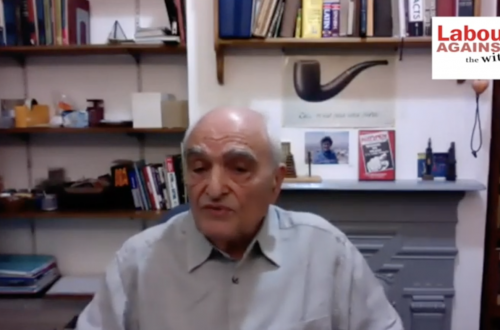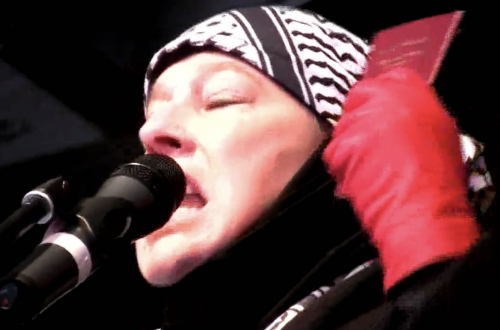Fathom 18 is a bumper issue offering 30 pieces on four broad topics: the Middle East after ISIS, The Balfour Declaration and the Great Powers, Peace and the Process, BDS and the Left.
1. THE MIDDLE EAST AFTER ISIS
We asked a range of experts to evaluate the future of the Middle East after the fall of the Islamic State (IS). Read critical assessments from Craig Whiteside, Ely Karmon, David Wells, Kyle Orton, Aymenn al-Tamimi, and Michael Barak of the prospects for reconstruction and governance in the formerly IS-held territory, the likely response of the Jihadi movement to its defeat, the best strategies Western states can adopt to defeat the ‘returning Jihadis’ and the shape that needs to be taken by a viable regional security framework in the future.
Also, Michael Herzog examines Israel’s strategic interests and polices in light of the recent de-escalation agreement for the southern theatre in the Syrian civil war. He argues that the West should utilise their existing military assets on the ground, as well as fostering cooperation with willing regional partners, in order to address the Iranian threat emerging in the region after ISIS.
2. BALFOUR AND THE GREAT POWERS
Fathom 17 was a special issue examining the 100th anniversary of the Balfour Declaration, featuring articles by Toby Greene, Efraim Halevy, Donna Robinson Devine, James Sorene, Elias Zananiri, Ronnie Fraser, and Azriel Bermant.
In Fathom 18 we offer two additional responses to ‘Balfour 100’.
Israeli critical sociologist Gershon Shafir argues that British Christian Zionism pre-dated practical Jewish Zionism and helped to ensure that, by the First World War, British imperial interests were woven into a narrative of Jewish return, creating ‘the political category into which Jews fitted themselves’ and ensuring that Jews were the only political community in Palestine to be recognised in the Balfour Declaration.
Historian Jonathan Schneer’s study The Balfour Declaration: The Origins of the Arab-Israeli Conflict was highly praised by the late Sir Martin Gilbert: ‘Why did Britain offer the Jews a home in Palestine? Had they not already offered Palestine to the Arabs, two years earlier? This extraordinarily well-documented and revealing book gives the answers.’ Schneer spoke to Fathom’s Sam Nurding shortly before events in London marking the centenary of the Declaration.
Focused on the inter-war years, Bruce Maddy-Weitzman has written a sparkling review of an important book, The Guardians: The League of Nations and the Crisis of Empire by Susan Pedersen (Oxford: Oxford University Press, 2015).
3. PEACE AND THE PROCESS
Less fashionable today than once it was, besieged by maximalists on both sides, the ‘two states for two peoples’ solution remains in our view the only policy that warrants the name ‘solution’ because no other proposal can recognise and reconcile the legitimate national aspirations of both peoples, which is the only basis for a just peace. So for our part we will continue to ‘view with favour,’ to steal a phrase, the vision of mutual recognition, coexistence and peace in the small strip of land between the river and the sea, and so we continue to welcome in our pages the best thinking from all parties about how to advance the two-state solution.
In this issue Einat Wilf and Yair Hirschfeld reflect on the experience of Oslo. While Wilf takes issue with the politics of the play ‘Oslo’ currently showing in London, Hirschfeld, one of the pioneers of the Oslo process, reflects on his experiences then at the birth-pangs of the peace process and the hopes he still harbours for it today.
Interviews with Joint List leader Ayman Odeh and former director general of the Ministry of Strategic Affairs Yossi Kupperwasser bring important perspectives from across the divide about the next steps that need to be taken if an apparently stalled process is to get into gear.
Ayman Odeh – a political visionary who is fond of quoting Martin Luther King Jr. – argues for a new politics of change in Israel. ‘Were the government to pursue peace, democracy, and social justice, and treat the country’s Arab citizens as legitimate members of political life’ he told Fathom, ‘the Arab sector will “come out in droves” to build a fair and equal country that works for the benefit of all of its citizens, as happened in Rabin’s time’.
Yossi Kupperwasser challenges the idea that Israel is no longer committed to the two-state solution. This is to radically misread the reasons for the failure of previous negotiations, he claims, missing the baleful role of both the Palestinian commitment to a maximalist narrative that recognises neither the Jewish people nor the legitimacy of the Jewish state and of its campaign of incitement which poisons the minds of the Palestinian people. Suggesting that the international community, and not only US President Donald Trump, is now beginning to understand this, as well as the need to apply pressure to encourage change, he argues that ‘if the Palestinians would change this narrative, Israel would be more than happy to find a solution’.
Fathom advisory editor Sara Hirshhorn’s new book City on a Hilltop: American Jews and the Israeli Settler Movement (Harvard University Press, 2017) has been one of the most discussed of 2017. It unsettles stereotypes, showing that the 1960s generation who moved to the occupied territories were not messianic zealots or right-wing extremists but in many cases thought of themselves as idealists and liberals seizing an historic opportunity to create a ‘city on a hilltop’. On the 50th anniversary of the 1967 Six-Day War, Hirschhorn sets out why here book illuminates the changing face of the settlement project and the shifting dynamics of the clash between liberal values and settler realities.
Changing focus, Chemi Peres takes a leaf out his father’s book to dream about a new Middle East. Specifically – and in the kind of practical detail that suggest his dream can be realised if the will is there – Peres sets out a vision of Israel the ‘Start-up Nation’ being a catalyst to create a ‘Start-Up Region’.
Michael Koplow reflects on Israel’s diplomatic relations and makes the case that, putting the hype aside, Israel’s relations with the West remain dependent on the Palestinian issue.
Lauren Mellinger, formerly of Brookings and now a Research Fellow at BICOM, reviews The Endless Quest for Israeli-Palestinian Peace: A Reflection from No Man’s Land,’ the memoir of former UN Special Coordinator for the Middle East Peace Process Robert Serry, who provides an in-depth, insiders account of both conflict management and efforts to broker peace between Israelis and Palestinians, between 2007 and 2014.
4. BDS: ROOTS AND RESPONSES
Almost entirely ineffective as a boycott movement, the ability of the ‘BDS’ movement to demonise Israel as a state beyond the pale, especially on the political Left, should not be underestimated. In this issue we offer several pieces that shed light on the relationship between ‘the ostensible left’ – to steal an inelegant but accurate phrase from Sean Matgamna, the author of one of the books under review – and Israel.
Dissent editorial board member Jo-Ann Mort, a cofounder of the Democratic Socialists of America (and a supporter of Americans for Peace Now), reflects critically on the recent DSA vote to endorse the Boycott, Divestment and Sanctions (BDS) policy. Mort regrets the transformation of a once democratic socialist movement led by Michael Harrington into an instrument of the new unthinking ‘anti-imperialist’ left. ‘A box was checked and a statement was made, alienating many of us who had a home in this movement for decades,’ writes Mort. ‘Whether the results will yield anything positive in the real world was hardly a concern.’
German historian Martin Jander writes on the growth of anti-Israel and anti-Jewish terrorism in West Germany in the 1970s, from Entebbe to Mogadishu. South African academic Milton Shain reflects on the state of contemporary South African Anti-Zionism. Colin Shindler reviews a new book by Sean Matgamna, a little-known but important figure in stimulating the growth of a left-wing network that since the 1980s has stood for the two-state solution and fought against left-wing antisemitism, educating two generations of activists and intellectuals in that spirit.
We also make available to readers two sharply contrasting views on the Israeli human rights NGO B’Tselem – The Israeli Information Center for Human Rights in the Occupied Territories, from Hagai El-Ad and Gadi Taub.
Hagai El-Ad is the Executive Director of B’Tselem and he sat down with the editor of Fathom for an in-depth interview. What does El-Ad think has been the impact of the occupation not just on the Palestinians but on Israeli democracy and society? Why does B’Tselem insist that the occupation is a human rights issue? How does he understand the relationship between politics and human rights? How does he respond to the storm of criticism of B’Tselem from the Israeli Right? Why did he decide to make a speech against Israeli settlement policy to the UN in 2016, prompting the Israeli prime minister to say he had joined the ‘chorus of mudslinging’ against Israel? What is B’Tselem’s report card on Israeli democracy?
Gadi Taub examines ‘the Gabriel Affair’. In April 2017 the social democratic German Foreign Minister Sigmar Gabriel decided to meet with two NGOs, Breaking the Silence and B’Tselem, while visiting Israel. He did so knowing that this would result in the Israeli prime minster refusing to meet with him. Taub examines the political meaning of ‘the Gabriel Affair’. Why did the prime minister make it a matter of ‘B’Tselem or me’ and was he right to do so? How should Breaking the Silence and B’Tselem be characterised – as legitimate human rights organisations or as demonisers of the State of Israel? And what should be the proper relationship between human rights advocacy and the unresolved national question in Israel and Palestine?
Gerald Steinberg, Director of NGO Monitor, argues that it is time to press reset on Israel’s confused response to the genuine threat of BDS and demonisation. A series of own-goals have, he claims, created the impression of a powerful, aggressive government harassing weak NGOs. An alternative approach, based on Israeli MKs and their counterparts in foreign parliaments creating a shared policy framework, is needed.
Philip Spencer reviews Marxist Enzo Traverso’s The End of Jewish Modernity. He sets out his disappointment in what he finds to be a dismaying regression from the author’s own earlier valuable work. Spencer is unpersuaded by ‘a simplistic analysis, which reproduces many of the flaws of a tradition he seems unable either to reflect critically upon or to develop’.
Finally, Liam Hoare reviews Yael Neeman’s We Were the Future: A Memoir of the Kibbutz. This remarkable reflection on a childhood spent on Yehiam, a Marxist Zionist kibbutz in the Upper Galilee, concludes rather sadly: ‘The beauty of our kibbutz was incredible. We could never get used to it. We all felt unworthy of it and the system. Who could say no to an attempt to create a better, egalitarian, just world? We did say no. We defected.’



